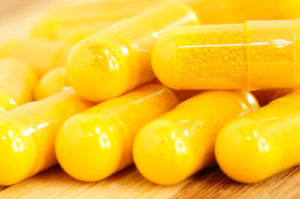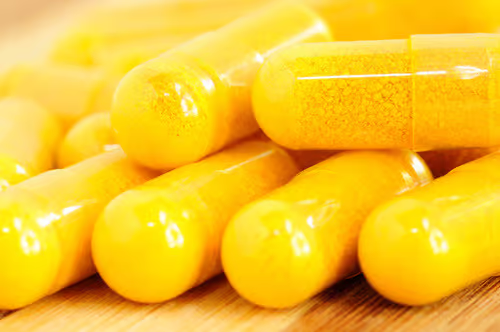Table of Contents
Berberine (Coptis chinensis, Hydrastis canadensis) is a natural plant alkaloid that has been used for millennia in traditional Ayurvedic and Chinese medicine to treat diarrhea and gastrointestinal issues.
Berberine is a unique and powerful dietary supplement with nootropic benefits. Research and clinical experience in the last 5 years demonstrates Berberine’s ability to provide positive effects on blood sugar, cholesterol, heart disease, blood pressure, autoimmune disease, inflammation, weight control, gut problems, cancer and Alzheimer’s Disease.
Berberine has recently been shown to help control blood sugar as effectively as the prescription diabetes drug metformin.
But even if you’re not concerned with diabetes or pre-diabetes, you may find benefit in adding Berberine to your nootropic stack. Our modern Western diet is detrimental to overall health. And particularly cognitive health. Berberine can be a powerful ally in achieving and maintaining optimal performance.
Here we’ll explore how Berberine benefits your brain.
Berberine helps:
- Neurotransmitters: Supplementing with Berberine has been shown to increase levels of serotonin, dopamine, norepinephrine in the brain.
- Learning & memory: Berberine preserves Long-Term Potentiation (LTP) in synapses normally lost from diabetes.[i]
- AMPK: Berberine increases adenosine monophosphate-activated protein kinase (AMPK). This enzyme AMPK is the master metabolic switch in each of your cells. When AMPK levels increase you get an energy boost, blood glucose is regulated, insulin sensitivity improves, reduced triglycerides, and increased fat-burning in mitochondria.
Overview
Berberine (Coptis chinensis, Hydrastis canadensis) is a bright yellow alkaloid extracted from plants such as Indian Barberry (tree turmeric), Oregon Grape and goldenseal.
Other plants containing Berberine used in medical practice include Chinese goldthread, Japanese goldthread, Phellondendron amurense, and the Amur cork tree (Huang Bo).[ii]

Plants containing Berberine have been used in traditional Ayurvedic and Chinese medicine as an antibacterial, anti-inflammatory, anti-diarrheal, anti-microbial, anti-protozoal and immune-enhancing therapy for thousands of years.[iii]
If you’ve only just found out about Berberine, it’s not surprising. This botanical extract came from obscurity to front and center of the dietary supplement market because of recently published research. Of the 4,434 clinical studies for Berberine listed on PubMed, over a third have been published in the last 5 years.[iv]
Berberine is one of the few nootropic supplements known to activate (adenosine monophosphate-activated protein kinase) AMPK. This is especially relevant if you’re diabetic, pre-diabetic, or over-weight. All conditions that negatively affect cognition.
The enzyme AMPK is the metabolic master switch inside each one of your cells.[v] And is critical for regulating cellular metabolism including lipid, glucose and energy imbalances.[vi] AMPK directly influences brain cell energy, function, repair, and maintenance.
Berberine activates AMPK, and AMPK activation boosts fat burning in mitochondria. Studies have shown that supplementing with Berberine prevents fat accumulation in the body.
A study in Phytomedicine had obese human subjects taking 500 mg of Berberine 3-times per day for 12 weeks. The result was a reduction in body weight, blood lipid and hormone levels normalized, and inflammation went down.[vii]
Berberine activates AMPK and increases its phosphorylation (high energy exchange in a brain cell), which elevates the AMP/ATP ratio, and reduces oxygen consumption. This increase is called glycolysis.
This suggests that Berberine enhances glucose metabolism through the stimulation of glycolysis. Which is related to an inhibition of glucose oxidation in mitochondria.[viii] More efficient mitochondria protected from oxidative stress means better brain function and memory.
Berberine supplementation helps control food intake and operates as a memory enhancer. Helping you cut down on weight gain, reduces the likelihood of metabolic syndrome, and helps prevent or control type-2 diabetes.
How does Berberine work in the Brain?
Berberine boosts brain health and function in several ways. But two in particular stand out.
- Berberine normalizes blood sugar. Glucose is the primary source of energy for every cell in your body. Because your brain is so rich in neurons, the demand for energy uses a half of all the sugar energy in your body.
Learning, memory and thinking or cognition are closely linked to glucose levels. And how efficiently your brain uses this fuel source. If there isn’t enough glucose in your brain, neurotransmitters are not produced. And communication between neurons breaks down.
Hypoglycemia, a common problem with diabetes caused by low blood glucose levels leads to a loss of energy for brain function. And is linked to poor attention and cognitive function.[ix]
Problems with blood sugar and type-1 or 2 diabetes affects brain cell connectivity, causes the brain to shrink, and restricts cerebral blood flow. Causing major problems with cognition, and if severe enough, promotes the development of dementia. Berberine helps prevent this cognitive decline by controlling blood sugar and brain cell metabolism.[x]
- Berberine boosts memory. Studies show that Berberine inhibits acetylcholinesterase (AChE) activity and increases glucagon-like peptide (GLP-1)[xi] The enzyme AChE breaks down acetylcholine (ACh) which is critical for concentration, focus and memory. By preventing the breakdown of ACh, more of this neurotransmitter is available for learning, memory and recall.
GLP-1 is a peptide hormone that plays a crucial role in controlling diabetes. And is involved in cognition, learning and neuroprotection. Studies have shown that GLP-1 enhances synaptic plasticity in the hippocampus. And reduces the aggregation of amyloid β protein (Aβ) and the microtubule-associated protein Tau which are associated with Alzheimer’s Disease.[xii]
Increasing GLP-1 with Berberine increases neuroplasticity and reduces protein aggregation resulting in an increase in long-term potentiation. And improved long-term memory.
How things go bad
Most of us in our Western society suffer from chronic nutritional overload.[xiii] Over eating or not eating the right foods in the right amounts messes with the uptake of glucose and fat from our blood for effective energy regulation.
The result is an accumulation of cellular waste and damaged proteins. Impairing genes that should help us live longer and boosting genes that cause inflammation.
As the cells in our body and brain consistently deal with over-nourishment, the enzyme AMPK decreases.[xiv] Resulting in weight gain, diabetes, neurodegenerative disease and ultimately, premature death.
Decreases in AMPK activity results in:
↓ Chronic inflammation
↓ Accelerated aging
↑ High cholesterol and triglycerides
↑ Increased belly fat
↓ Insulin resistance
↓ Mitochondrial insufficiency and dysfunction
↓ Neurodegeneration
The consequences to brain function of low AMPK activity results in decreased alertness, brain fog, slower thinking, poor memory and a decline in mood.
Berberine benefits
 Berberine has been used for thousands of years as treatment for bacterial infections, fungus, protozoa, viruses, chlamydia and candida. It helps protect against cholera and E coli. It is used as an anti-diarrheal, and to reduce inflammation.
Berberine has been used for thousands of years as treatment for bacterial infections, fungus, protozoa, viruses, chlamydia and candida. It helps protect against cholera and E coli. It is used as an anti-diarrheal, and to reduce inflammation.
Up until just a few years ago, you’d find Berberine in the pharmacy section for gastrointestinal issues.
In the last 5 years, research has shown Berberine to be effective for treating diabetes, metabolic syndrome, inflammation and even cancer.
Berberine is gaining a reputation for its anti-diabetic effects. Helping to prevent or treat type-2 diabetes. It helps with glucose metabolism, maintenance of healthy lipid levels (LDL & HDL cholesterol), improves insulin sensitivity, helps lower blood pressure, weight management, the immune system, and boosts cognition.
Research shows that Berberine may provide anti-aging benefits by extending the life of telomeres.[xv] And studies have found it’s able to suppress the growth of several different types of tumor and cancer cells.[xvi]
Reviews from those using Berberine frequently mention a lift in mood. Likely because it provides a significant increase in the neurotransmitters dopamine, norepinephrine and serotonin.
Berberine may also help prevent Alzheimer’s disease because of its effects on β-amyloid pathways, and the enzyme that degrades acetylcholine, acetylcholinesterase.[xvii]
How does Berberine feel?
If you start feeling shaky between meals, get a little dizzy or nauseous, or feel like your mood has taken a sudden turn south – you may want to try Berberine.
Many neurohackers report how supplementing with Berberine has made a dramatic change in how they feel. And their quality of life.
It may take up to a month to begin feeling dramatic changes in how you feel. Many report seeing or feeling positive changes within days.
Sugar cravings disappear. No sugar crashes late afternoon. Energy levels rise and stamina increases.
Many find that thinking is easier and quicker. Brain fog is no longer a problem. And mood is much better.
Berberine helps with weight loss so you may find your waist getting smaller. It may not be a dramatic difference but you’ll feel better.
Many people report a greater improvement in symptoms when switching from metformin or statins to Berberine.
Berberine is proven to help regulate blood sugar. Your friends and family will thank you for no longer subjecting them to mood swings.
Berberine can increase neurotransmitter levels. So a boost in dopamine and serotonin may put you in a better mood.
Many report skin conditions or gastrointestinal issues brought on by stress are no longer a problem. Less indigestion and heart burn.
If you have blood sugar issues, you may not realize how bad you feel until you start feeling better by adding Berberine to your nootropic stack.
Berberine Clinical Research
A lot of the research lately has centered around using Berberine to treat various problems associated with diabetes. So why is this important to the nootropics community?
The latest figures released by the CDC in the United States reported that 29 million people have diabetes. This number was up from 26 million in 2010. The CDC went on to say that one in four people with diabetes don’t know they have it.[xviii]
Another 86 million adults in the USA are pre-diabetic. That’s one in three American adults. Pre-diabetic means blood sugar levels are higher than normal but not high enough to be classified as type-2 diabetes.
And this is not just an American problem. The World Health Organization (WHO) reports that as of 2014, 422 million people worldwide are dealing with type-2 diabetes.[xix] I imagine that just like in the USA, hundreds of millions more are pre-diabetic.
Now let’s take a quick look at how diabetes affects the brain. Those with type-2 diabetes are more apt to get Alzheimer’s or some other form of dementia. If you’re diabetic or pre-diabetic, learning, executive function and psychomotor performance all suffer.[xx]
All the brain functions affected by diabetes and its causes can be repaired and maintained with the use of the right nootropics.
The most important nootropic supplement in the management of diabetes is Berberine. And its effects on brain function will help anyone working on brain optimization.
Berberine improves learning & memory
Problems with memory are often associated with how brain cells use glucose, by oxidative stress, and cholinergic dysfunction. Research has found that treatment with antihyperglycemics that affect blood sugar (glucose), antioxidants and cholinergic agonists boosted memory.
Berberine works as an antioxidant, and is an acetylcholinesterase (AChE) inhibitor. A study in India was done with diabetic rats with severe learning and memory problems. The rats were given 25 – 100 mg/kg of Berberine twice daily for 30 days. Learning and memory improved along with lower hyperglycemia, less oxidative stress, and more cholinergic activity.[xxi]
Diabetes kills brain cells (apoptosis), negatively affects synaptic plasticity and long-term potentiation in the brain. Which causes problems with learning and memory. Researchers in Iran working with diabetic rats were able to restore learning and memory with 100 mg/kg of Berberine per day.[xxii]
Researchers in Korea gave Berberine to rats 30 minutes before injecting them with scopolamine. The team found that daily dosing of Berberine improved the memory impairment caused by scopolamine.
Digging deeper, the researchers learned that Berberine increased cholinergic activity, restored Brain-Derived Neurotrophic Factor (BDNF), and cAMP-response element-binding protein mRNA expression in the hippocampus. And Berberine also significantly decreased proinflammatory cytokines like interleukin-1β, tumor necrosis factor-α and cyclooxygenase-2 mRNA in the hippocampus.[xxiii]
Berberine as an anti-depressant
While not considered a first-line treatment for depression, several neurohackers report the “side effect” of a better mood when supplementing with Berberine. We have some clinical evidence from animal trials that could explain this antidepressant effect of Berberine. But no human clinical trials.
Similar to L-Deprenyl, Berberine seems to be a monoamine oxidase-A (MAO-A) inhibitor.[xxiv] The enzyme MAO is involved in the degradation of norepinephrine and dopamine in the brain. And research has shown that an overabundance of MAO-A and B happens as you get older. Inhibiting MAO-A increases norepinephrine and dopamine in your brain. Which in turn improves your mood.
Research with mice showed that supplementing with Berberine increased norepinephrine (31%), serotonin (47%) and dopamine (31%) in the whole brain. Increasing these major neurotransmitters is certainly going to have a positive effect on mood.
Major depression and anxiety have long been treated as a dysfunction of the GABA, serotonin and glutamate systems in the brain. And while SSRI’s and other prescription antidepressants have had some success in treating anxiety and depression, full remission of symptoms has not happened.
Some of the latest research has shown that sigma-receptors play a role in depressive disorders. And companies are working on developing drugs that modulate the sigma-1 receptor.[xxv] Turns out that Berberine is a modulator of sigma-1 receptors.[xxvi]
Berberine as good as metformin for diabetes
Probably the most celebrated clinical evidence for Berberine is its ability to control blood sugar and lipid metabolism in diabetes. Berberine stimulates the uptake of glucose into cells, improves insulin sensitivity and reduces glucose production in the liver.
This famous study was done in China with adults diagnosed with type-2 diabetes. In study A, patients were randomly assigned treatment of Berberine or metformin 3-times per day for 3 months. The hypoglycemic effect of Berberine was similar to that of metformin. Both decreased hemoglobin A1c, fasting blood glucose and plasma triglycerides.
In study B, 48 type-2 diabetic adults were supplementing with Berberine for 3 months. Results were similar to the study A group. But the researchers noted that total cholesterol, and LDL-cholesterol decreased significantly as well.
The researchers concluded that Berberine is a potent hypoglycemic agent with beneficial effects on lipid metabolism.[xxvii] But without the increased risk of death from heart attack by using metformin.
Berberine Recommended Dosage
Recommended dose of Berberine is 900 – 1,500 mg per day.
Berberine has a short half-life, so you need to dose it several times a day to keep stable levels in your blood.
When you first start supplementing with Berberine, you may experience diarrhea, the sweats, or even vomiting. This supplement is a powerful antibiotic.
The good news is Berberine only kills the ‘bad’ bacteria in your gut. Not the good bacteria like you often experience with prescription antibiotics. But note that when those bad bacteria decide to leave your body, it may feel sick. But this side effect is only temporary.
You may be able to avoid an unpleasant reaction to Berberine by starting with a lower dose at first. And work your way up.
The debate continues on how bioavailable Berberine actually is. Recent reports suggest that it’s not detectable in blood because it’s absorbed so quickly into cells. But several clinical studies suggest Berberine is poorly absorbed. You can improve the absorption of Berberine by taking it with the sodium caprate that comes in coconut oil.[xxviii]
Take your nootropic stack containing Berberine with a tablespoon of unrefined coconut oil and problem solved.
It’s best to split your dose so you’re taking 500 mg of Berberine 3-times per day. Preferably about 30 minutes before meals which helps prevent the glucose and lipid spike the comes with eating a meal.
Berberine Side Effects
If you are dealing with a medical condition or are taking any medication (including antibiotics), you should speak with your doctor before taking Berberine. Especially if you’re currently using blood-sugar lowering medication.
Diabetics who are controlling blood sugar with insulin must use caution because Berberine can lower blood sugar. I’ve seen more than one review of someone remarking, “dropped my blood sugar extremely low!”.
If you’re dealing with low blood pressure be careful using Berberine because it can lower blood pressure.
If you’re pregnant or nursing you should NOT use Berberine.
Berberine inhibits cytochromes P450 (CYP3A4, CYP2D6 and 2C9) in your liver.[xxix] Which means it can cause a substantial increase in the bioavailability of certain drugs and nootropics. Which can be dangerous. You may need to lower your dosage of certain drugs to prevent this potential toxicity. Or avoid Berberine altogether.
Berberine affects muscle protein synthesis and causes muscle atrophy according to some animal studies.[xxx] So if you’re worried about muscle loss, don’t use Berberine. Or amp up your exercise program to counteract these effects.
Berberine has a very good safety profile. The primary side effects are related to digestion like cramps, diarrhea, gas, constipation or stomach pain.
As with any nootropic, start with the lowest recommended dose and you’ll likely avoid any problems. And spreading your dose throughout the day helps avoid side effects and keeps a steady level of Berberine available in your system.
Where to buy Berberine
Berberine is available as a powder, and in capsules as Berberine HCl (hydrochloride) or Berberine Sulfate.
One company claims that the sulfate version is superior because once the sulfate is removed during digestion, it can participate in “phase II detoxification reactions in the liver”. I cannot find any science to back up this claim.
If you choose the powder form, you’d be wise to put it in capsules because Berberine is an ammonium salt alkaloid. Which tastes nasty.
I’ve tried several different brands of Berberine, but found the liposomal form to work best Enzymedica® Phytosome Berberine.
Studies with animals show that Berberine could cause DNA damage promoting tumor growth. This DNA damage can be avoided by using Milk Thistle with Berberine. The radical-scavenging and antioxidant properties of the compound silymarin in Milk Thistle appears to counteract this effect.[xxxi] I use Zazzee USDA Organic Milk Thistle Extract while using Berberine which protects my liver and against DNA damage.
Nootropics Expert Recommendation
 Berberine 900 – 1,500 mg per day
Berberine 900 – 1,500 mg per day
I recommend using Berberine as a nootropic supplement.
Your body does not make Berberine on its own. So to get its benefits you must take it as a supplement.
Berberine is especially helpful for those dealing with diabetes, high cholesterol, obesity, gut bacterial overgrowth, and Alzheimer’s.
Berberine is a powerful nootropic supplement. It may help reduce sugar cravings, avoid that afternoon energy slump, boost energy levels, reduce brain fog, improve your mood and tame digestive issues.
You can safely take up to 1,500 mg of Berberine daily if needed. But dosed 500 mg at a time and preferably before you eat.
I use and recommend Enzymedica® Phytosome Berberine which works better than others I’ve tried and seems to be more bioavailable.
You can help absorption by taking Berberine with a tablespoon of unrefined coconut oil (for the sodium caprate). And I recommend taking it with 175 mg of Milk Thistle extract each time to avoid possible DNA damage from long-term use.









Join The Discussion - 248 comments
Michael B
November 15, 2025
Stupid question-Since Enzymedica® Phytosome Berberine has 275 mg and you state that it is recommended at 500mg per dose, should I take two tablets (550 mg) rather than just one each time?
David Tomen
November 16, 2025
Nichael, there are no “stupid questions” when it comes to nootropics. The recommended dosage for Berberine is 900 – 1,500 mg per day. So to get approx. 900 mg per day you could take that supplement 3-times per day.
Michael B
October 11, 2025
Hi David-I’m dealing with type 2 diabetes and I am considering stacking berberine, chromium polynicolate, vanadyl sulfate and milk thistle. I have gotten good results with the chromium and vanadyl separately from the berberine which also seems helpful.
Is my proposed stack too much? Thanks for all you do!
David Tomen
October 11, 2025
Michael, I wish I could help you out but I have not researched that form of chromium or vanadyl sulfate. I highly doubt that your proposed stack is “too much”. If it works for you then use it.
Tello
May 22, 2025
Hi David, should milk thistle be taken every time you take berberine, three times a day? Or just one capsule a day?
David Tomen
May 25, 2025
Tello I take it each time or 3-times per day.